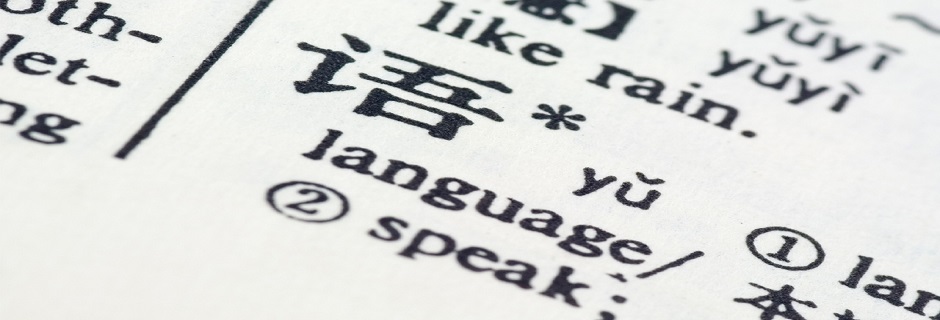Due to the demand, there are now hundreds of translation agencies across the globe especially to translate from English to Chinese. As the world grows smaller; people travel across the globe more frequently and more business is done internationally, translation services are increasingly in demand. A translation service can now be needed for anything from the translation of an education certificate to translating a website.
What is Chinese translation?
From the title, you can already guess what this article is about. The reasons to translate from English to Chinese for a document are endless. You could be doing it as a project. Where you have to write about some concepts that are related to China in Chinese.
Another example is getting married in China. For this purpose, you may need to present some documents to the marriage registry. And like other countries, you will be requested to have these documents translated to the native language of that country.
Traveling could be another reason for having your documents translated from their original language to Chinese. When applying for your visa you will be asked to present some documents. Which the country may require you have to be translated into their local language
Even pursuing a degree in China will require you to prepare some documents and have them translated to Chinese
In this article, we will be discussing the Chinese translation. When it’s necessary, how it’s done and challenges faced in translating the language. As well as common grammar rules surrounding the language
But first, let’s start with a simple definition. Chinese translation involves having your documents translated from one language to Chinese.
How it’s done?
Chinese is different from the English language in so many ways when it comes to translating to foreign languages, you may be tempted to construct sentences in your native language first and then attempt to translate it to the foreign language.
This is a practice that should be avoided as it leads to slow progress. This method of translation can prove very tiresome.
The goal should be to construct sentences in Chinese without having to go through another language. This is admittedly not an easy task to achieve. Beginners and intermediate learners of the language will find it difficult to internalize and of common words.
A common problem faced during translation is that people focus on the original text so much they forget all they know about the foreign language they are translating to.
Because the Chinese language lacks English equivalent, focusing on direct translation from your native language to Chinese will make you frustrated. A solution to this would be taking the meaning of the sentence and trying to translate to that meaning,
Take this sentence for example “the hat is yellow”. To translate this, don’t look for the Chinese equivalent of “the”, “hat”, etc. Rather look for a way to describe the message the sentence is trying to pass.
Challenges faced during Translation
Just like Japanese, Chinese is deemed one of the most difficult languages to learn. And it can be even more difficult to learn. Expert native speakers and professional translation services have admitted that there are several challenges to translate from English to Chinese.
Here are some commonly listed problems:
Several dialects – contrary to what a lot of people may think. There isn’t one Chinese language. The Chinese language is a collection of Chinese dialects. All of which are different from each other. Standard Chinese is considered a variant of Mandarin and is the most common dialect used in China.
Linguistic Difference – if the English language and Chinese language are kept side by side for a detailed analysis of how linguistics work in both, we would see a myriad of differences.
Just like in Japanese, we can see that a list of preset challenges faced in Chinese translation has already been prepaid
- Lack of definite and indefinite articles: Chinese lacks equivalents of definite and indefinite articles(a/the). And special measures are required to work around it.
- Lack of prepositions: common prepositions in the English language (at/by/in/to/from/with) do not have Chinese equivalents. Making it necessary to use special measures around it.
- Use of verbs: in English language, verbs point sentences in a specific direction. This isn’t the case in Japanese. Verbs come at the end of sentences or utterances. And the direction of the sentence is determined by structural particles
- The subject of sentences: Unlike the English language, Chinese sentences do not need to have a subject.
- Lack of plural forms: There are no plural forms of words in Chinese. This applies to demonstrative pronouns (these/those), nouns, and adjectives.
- Lack of English equivalents: a large number of words do not have Chinese equivalents
Chinese grammar rules also contribute in making translation difficult. Here are five examples of some interesting grammar rules you may not have known about Chinese. - Modifiers: in Chinese modifiers come before the word they are modifying
- Tenses:
- Word does not change: no matter where a word appears or how it is used, it reminds the some in Chinese. There are no subjugation of verbs
- Prominence in a sentence: This is a rule that English-speakers often find hard to get used to. Chinese is a topic prominent. This means that it puts the thing the sentence is about first. English is subject prominent, which means that it puts the doer of an action (the subject) in a sentence first.
- Aspect and Tense: the English language pays attention to both aspect and tense in sentences while the Chinese pay attention to just aspect.
Tense has to do with the time when an event took place. Aspect is about the completeness of an action relative to when it took place. Have a look at these two sentences in - Logical: the language is very logical and you begin to see it and appreciate it more once you’ve been able to gain some command over the language.
Why choose us?
We have a team of expert linguists and translators that are experts in the language. Meaning our writers observe the golden rule of translating to a language they are proficient in. They are conversant with all the nuances and intricacies n a language as complex as Japanese.
Our services range from:
- Technical translation
- SEO translations
- Degrees and diplomas
- Certificates such as birth certificates, death certificates, and marriage certificates
- Legal translations
- Academic articles
Our professional Chinese translation services agency, available 24-hours offer you translation services that are affordable and timely. You can trust us to deliver high-quality work according to your requirements.
Give us a chat and let’s make your translation process as seamless as possible.




